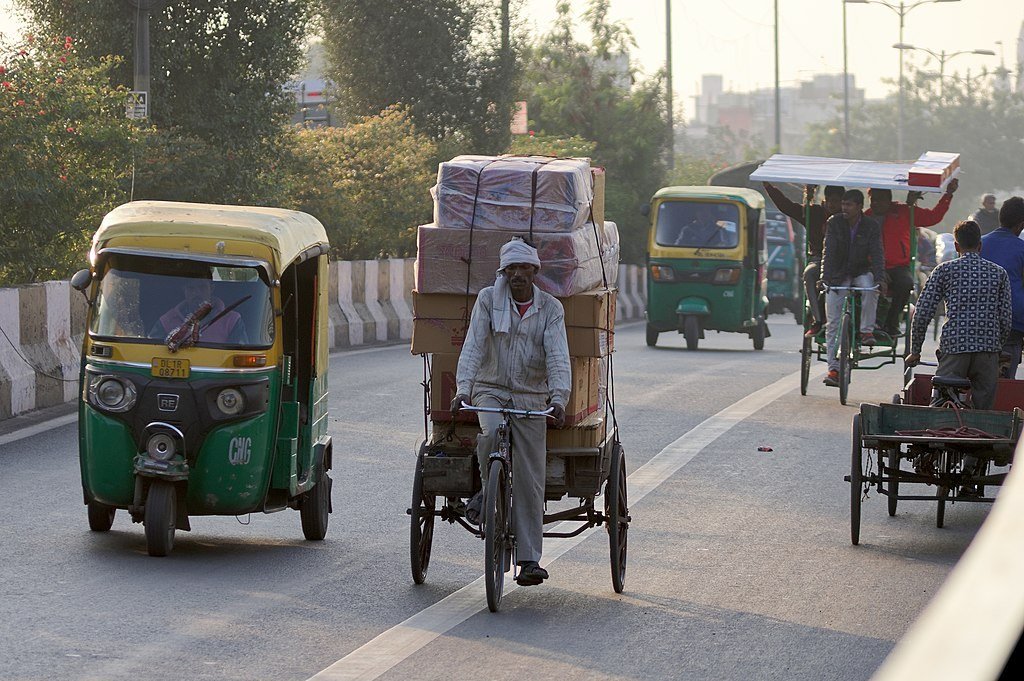India: PEN Delhi on the importance of press freedom during coronavirus
A street in Delhi
Update - 2 April 2020
It is outrageous that India, the world's most populous democracy, is restricting the free flow of information at a time of a great health crisis. These attacks on the media show that the government and its loud supporters want to control the narrative, and not the virus, which is the real threat in India. The intimidation of Vidya Krishnan, Siddharth Varadarajan, and others must stop.
India is acting in sync with other governments which find media criticism inconvenient. In the US, President Donald Trump, who was skeptical of the virus until recently, now wants to cast himself in a different light and is criticising American journalists who have persistently questioned and challenged the administration. In China, the government has cracked down on dissenting views in the country and urged the media to write positive stories that can be disseminated more widely.
Journalists covering the pandemic are taking grave personal risks to their health and are incredibly brave; they deserve support and solidarity, and we, the PEN community, call upon governments around the world to make their job easier and listen to the messengers, and not shoot them.
- Salil Tripathi, Chair of PEN's Writers in Prison Committee
A statement from PEN Delhi on press freedom during the COVID-19 outbreak:
In a democracy, cracking down on a pandemic requires the active support of a free press and must not include a crackdown on it. This is essential because fighting a pandemic requires a free media not just to inform the people likely to be affected by it but also to act as a watchdog for them, ever more important in a time of crisis.
It is in this context that PEN Delhi notes with concern the attitude of the Indian government, state governments and police authorities towards the media in India, during the ongoing battle against COVID-19 and the nationwide lockdown it has led to.
Just hours before announcing a national lockdown, Prime Minister Narendra Modi asked over twenty owners and editors of print media to publish “positive” stories, according to this report. While no one denies that publishing positive and inspirational stories in a time of crisis is important, this cannot be the only narrative and it is equally the media’s responsibility to give voice to the pain of the people, as well as to provide a critical perspective on the handling of crises. In the past, it is the media’s critical reporting on other disasters that has provided much needed information to the State to act.
Instead, according to the Committee to Protect Journalists, in the lockdown that ensued, journalists were assaulted by police forces. This was despite journalists being exempted from the ongoing lockdown to enable them to cover it on ground.
Further, journalists who have published reports critical of governments have been targeted: both offline and online. In UP, Vijay Vineet, news editor of Jansandesh Time was served a notice by the police for a story on the Musahar community, a Dalit community, having to eat grass as a consequence of their plight having worsened during the lockdown (many of the community’s members are daily wage earners).
Journalists, especially those writing for foreign publications, have also been subjected to abuse, and worse, on social media. Vidya Krishnan, a freelance journalist reported death and rape threats to Twitter for her article in The Atlantic.
It was also suggested on social media that Krishnan be prosecuted under some of India’s disturbing anti-free speech laws, including “Sedition” under Section 124A of the Indian Penal Code. Regrettably social media trolling has become another way of silencing free speech and branding any critical writing anti-national, discounting the fact that journalists who are critical write not out of hate but out of a deep concern for the country and its people.
On March 31st, the central government sought a direction from the Supreme Court that no media outlet should print, publish or telecast anything on COVID-19 without first ascertaining facts from the “mechanism” provided by the government. Thankfully the Supreme Court has denied this request, saying it would not interfere with “the free discussion about the pandemic” but concern over a government actively seeking prior censorship of news remains.
On April 1st, the Uttar Pradesh Police registered an FIR against the “editor” of the news portal, The Wire, for what the complainant called “an objectionable comment” which has “caused anger among people”.
Meanwhile, questions posed by health journalists regarding basic information on the State’s response to the coronavirus remain unanswered.
PEN Delhi appeals to the central and state governments to heed and respond to the media in this time of crisis instead of attacking it, and to not try and curb the powers of the press. This is the time to support a free and vibrant media.
Microblogging and social networking services like Twitter, too, need to be cognisant of accounts that pose and publicise violent threats to journalists, bearing great risk to do their jobs during such demanding times.
Media, in its turn, must stick judiciously to reporting the facts but the best way to avoid fake news and prevent panic in this dark hour is not to muzzle the watchdog, but encourage it. To strengthen the freedom of the press on one hand, and the transparency of the state on the other.

